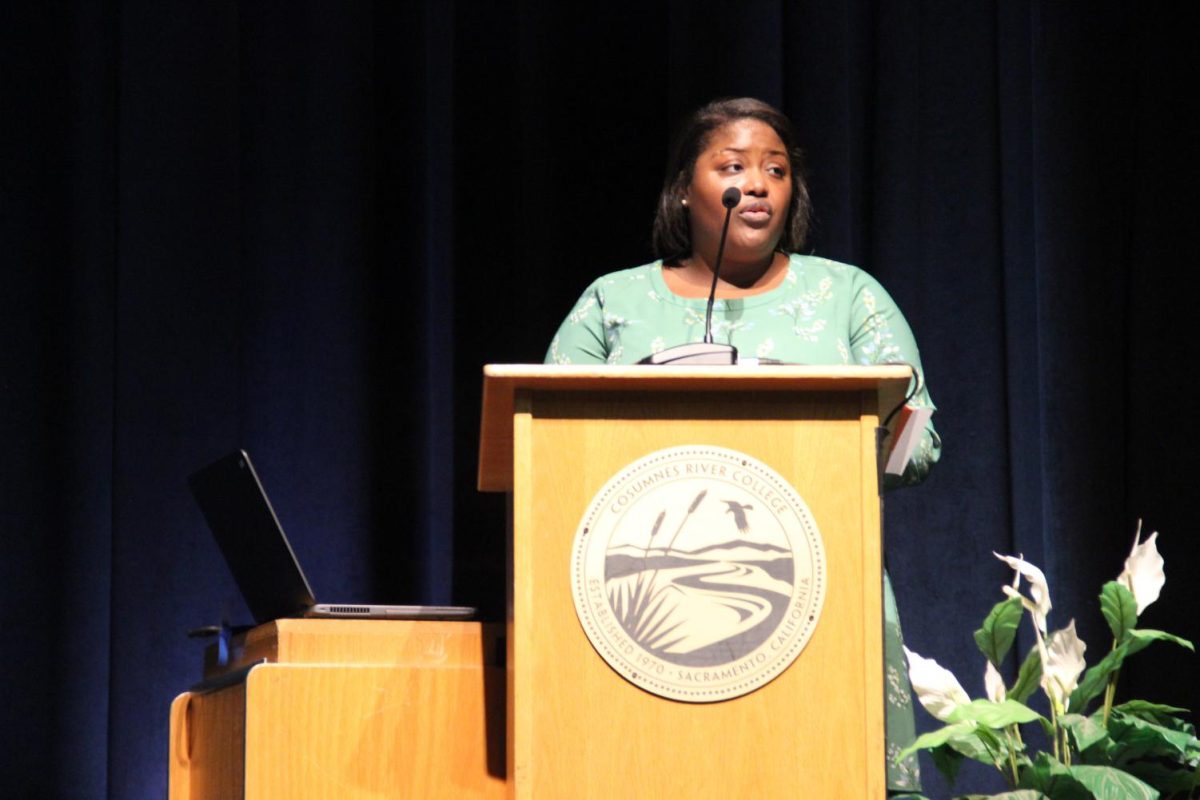Symposium focus on the morals behind having children
Main speaker Keisha Ray explains to the audience that black women in America are three times more likely to die during or soon after childbirth than white women. The event was part of the two-day Fall Ethics Symposium, the second day held at Cosumnes River College on Nov. 19.
The 14th Annual Fall Ethics Symposium, which was a two-day event held at Sacramento State and Cosumnes River College, centered around the ethics of having children.
Rick Schubert, executive director of the Fall Ethics Symposium, said that this annual event exposes students to academic opportunities and allows them to engage in a community discussion.
“We picked this topic because we thought it’d be particularly interesting,” said Schubert. “We try to be very current.”
The sessions at CRC took place on Nov. 19, the first one revolving around the racial disparities in maternal mortality rates and what it means for black womanhood. This session and discussion were presented by Keisha Ray, assistant professor at the University of Texas Health Science Center at Houston.
Ray shared that in Texas, black women make up 28% of maternal deaths yet only make up 11% of births. She discussed the racial bias that occurs when black pregnant women step foot into a doctor’s office or clinic.
“Oftentimes, black patients are seen as drug seekers and exaggerators of pain,” said Ray. “Some pregnant black women have reported that they will often times bring a white spouse, white in-laws as a sort of backup so the doctor will listen to them a little bit more.”
Panelists joined Ray on stage to give brief comments, provide their perspective and allow the audience to engage in the discussion.
A woman in the audience shared her experiences with racial bias where she was ignored by her doctor plenty of times. She then asked Ray what she recommends should happen when that occurs.
“Confront your doctor,” said Ray. “Make sure your concern is documented on the file because it’s protection. Often times the doctors will rethink it.”
Ray continued to answer more questions that the audience had and gave out insightful advice that can help in racial bias situations.
“It’s a unique environment to be in, especially as a community college student,” said Nadia Noah Connolly, an honor student who served as a panelist. “There are a lot of professional high-power philosophers who are coming in to talk about these things that they have worked on. It’s fascinating getting to interact with them.”
The audience continued to interact with the speakers and engaged in a powerful conversation. Students and people from the community were a part of the conversations and discussions.
“I think it’s a fantastic educational opportunity, especially if you have an interest in philosophy,” said Connolly. “It allows you to see what that field looks like from adult professionals who are actually in that field.”

